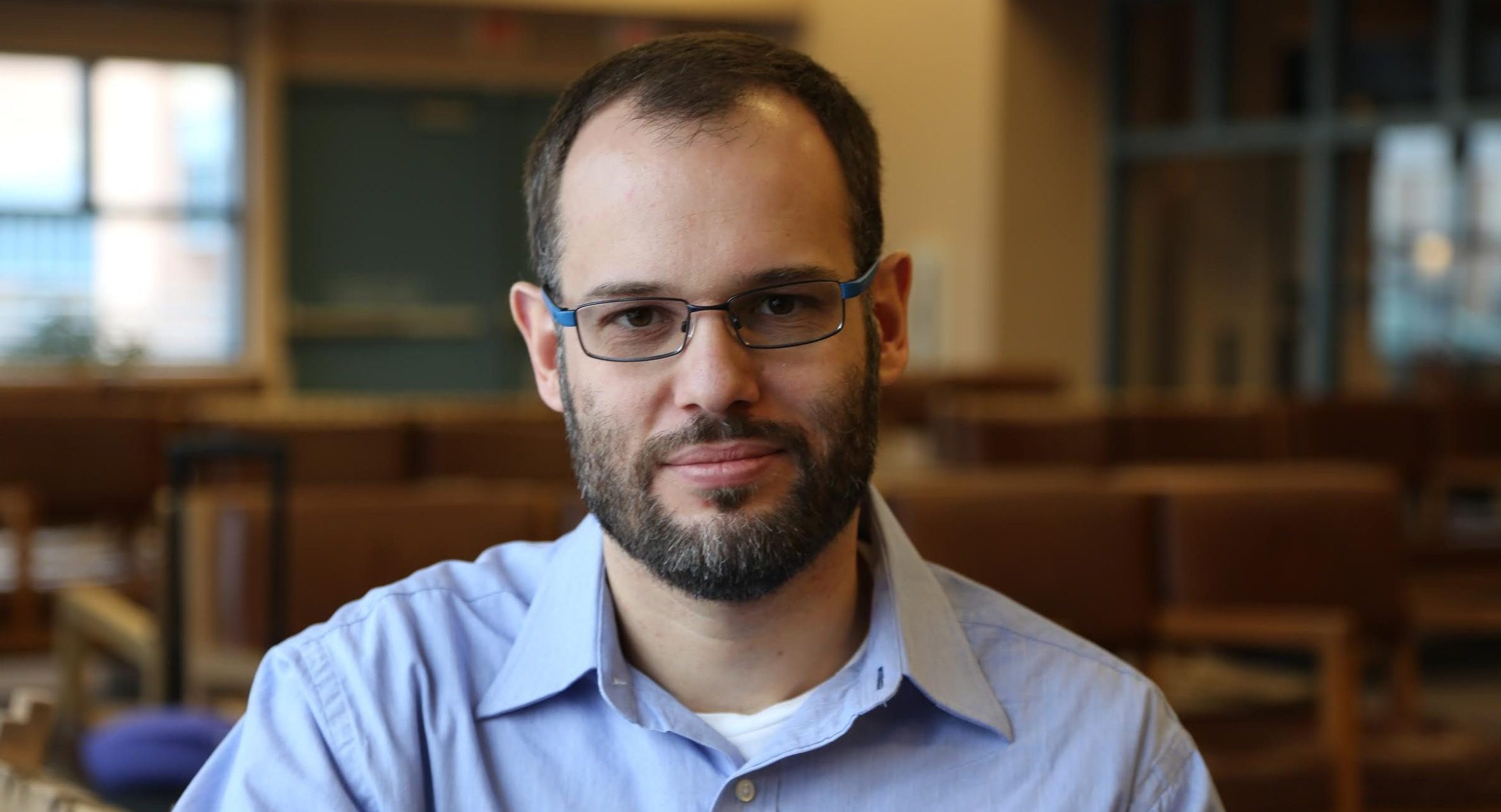“There is no free lunch,” in quantum computing, says Sebastian Deffner, a new assistant professor of physics at UMBC. Every uptick in a computer’s speed, accuracy, or memory comes at the cost of energy. Now, Deffner and a team of colleagues have set out to quantify the trade-offs between the costs and benefits of faster or more powerful computers.
Several studies suggest that quantum computing has the potential to be less energy intensive than classical computing, but no one has demonstrated that yet in a real system. Deffner and his colleagues hope to more clearly define the energy requirements of quantum computing in a new two-year project funded by a National Science Foundation INSPIRE grant.
“Quantum computing is cool because you can do infinitely more complex problems,” Deffner explains, but if the costs associated with that ability are too high compared to the benefits, quantum computers—at least as they are currently conceptualized—just might not be worth it. His team’s foundational research into the costs of quantum computing will inform the design of tomorrow’s computers, whether quantum or classical.
One aspect of their work will be investigating “biological computation,” the calculations completed by living cells. They’ll do so by creating computer simulations of information processing that occurs within cells.
Like human-engineered computers, these biological processes also incur costs with improvements in speed and accuracy. For example, the process of copying DNA rarely makes mistakes, because of complex error-correction methods within the cell. Just as added speed in a computer comes at a cost, “correction mechanisms do not come for free in cells,” says Deffner.
Even with those costs, Deffner explains, the biological system is very efficient. Given a few billion years to optimize DNA replication and other biological computation processes, “It seems likely that evolution would have gotten something right,” he says. In fact, estimates suggests that the biosphere taken as a whole operates significantly more efficiently than the best human-made computers.
“By understanding one side of the coin [biological computation], we will better understand the other [human-made computers],” Deffner says. His grant proposal states that this new research will be the “first to give a formal understanding of biological computation from a thermodynamic point of view.” Biologists should be interested in Deffner’s results, too, as they may inform ideas about how thermodynamic tradeoffs impose constraints on natural selection and evolution on Earth.
Only weeks after Deffner received official notification about this new grant, the New Journal of Physics presented him with the Early Career Award, which comes with a cash prize and a trip to London for an awards ceremony. The NJP described Deffner as “an extremely talented young researcher who in his early career has proven leadership qualities.” The honor came as a wonderful surprise. “This award means so much to me,” he shared. “I am simply overwhelmed.”
Recent advances in physics, the opportunity to shape the direction of his new lab at UMBC, the NSF grant, and the prestige that will come with his new award all make it possible for Deffner to forge his own unique path into a promising new research field. He’s driven by the sense that scientists “don’t understand the thermodynamic resources required in quantum computing yet,” and excited to do “a little bit of everything” on a quest that bridges quantum computing and biology to build a solid foundation for future research.
Image: Sebastian Deffner, courtesy Sebastian Deffner.

